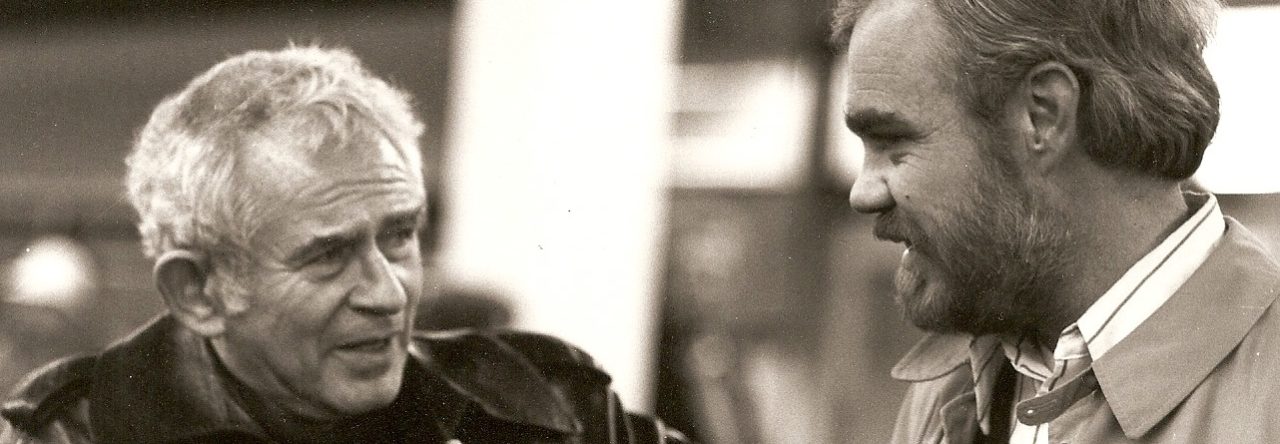Gore Vidal often said that his blind grandfather, Senator Thomas Pryor Gore, Democrat from Oklahoma, was the single most influential person in his life. A populist conservative of the same ilk as Senator Huey Long of Louisiana, Senator Gore was at his best going against the tide. Vidal was raised by his grandparents – his parents were divorced – and became his grandfather’s eyes on the Senate floor in the 1930s, running freely around the Senate when little thought was given to security. “The blind cowboy”, as the press referred to Senator Gore, tutored his precocious grandson in American and Roman history, encouraging him to read Cicero and Suetonius, Gibbon’s Decline and Fall and Henry Adams’s nine-volume history of the United States, all of which Vidal later drew on for his historical novels. In 1933, at the age of seven, he watched Franklin D. Roosevelt’s inaugural parade with his grandfather, who despised the architect of the New Deal. A strict constitutionalist and pacifist, Senator Gore opposed US entry into both world wars, and most of FDR’s programmes for the poor and unemployed. He equated the early, virtuous Roman republic with the US in its heroic early years, and deplored the moral laxness of the later empire. Gore Vidal’s pessimism, politics and grasp of history, Jay Parini states in Every Time a Friend Succeeds Something Inside Me Dies, “dovetailed in ways that gave pride to Senator Gore”.
Although Vidal wrote in nearly every genre, including poetry, his deepest artistic identity was as a novelist; he wrote twenty-nine novels in all, including several murder mysteries under the pseudonym Edgar Box. His screenplays (Ben-Hur was a favourite) and plays (The Best Man, a 1960 political melodrama) were written during the early 1950s, a period in which, Vidal claimed, he could not get his novels published after being blackballed by the New York Times and other publications for having written The City and the Pillar (1948), one of the first forthright novels of homosexual life in the US. Parini, suspecting that Vidal was exaggerating, determined that the daily Times did overlook Vidal for several years, but not the Sunday New York Times Book Review, which consistently reviewed his work. Vidal’s several volumes of essays are more important than his dramatic and cinematic efforts, but only the literary essays hold up. When he relishes the virtues of his favourite writers – George Meredith, Oscar Wilde, Somerset Maugham, Ford Madox Ford and others – he is vibrant and insightful, and when he is tackling writers he disliked – Henry Miller, John Dos Passos, John O’Hara and the nouveau roman novelists of the 1950s and 60s – his mandarin tone and mordant barbs are satisfying. He didn’t write much about his American contemporaries, many of whom he feuded with, and most of whom he ignored. Vidal preferred being grouped with the meritorious dead than with competitive contemporaries (especially Truman Capote). Most of his later efforts are nasty, shrill, exaggerated screeds. Parini offers a balanced view of Vidal’s essays. “The political essays”, he writes,
seem more improvisational than his solid and acutely sensitive readings of Henry James, William Dean Howells, Dawn Powell, and Paul Bowles: each of them exemplary, full of sustained reflections that display Gore’s wide knowledge of American and European literature. It was, at times, difficult to take some of his campy and malicious essays on politics as seriously as his criticism, but he certainly had a kind of shrill perceptiveness about American politics and many of these ideas needed expression. If, like Noam Chomsky (with whom he was often compared), Gore stood outside the normal range of American discourse, the problem was more with the culture than with Gore and Chomsky.
The most important of his political essays is “Homage to Daniel Shays”, a re-examination of one of the earliest American revolts against federal power. Published in 1972, it is a stalking horse for his novel about Aaron Burr, which came out in 1973. Burr is the lead-off volume of Vidal’s masterwork, seven novels about the defining moments of the American past he called Narratives of Empire.
